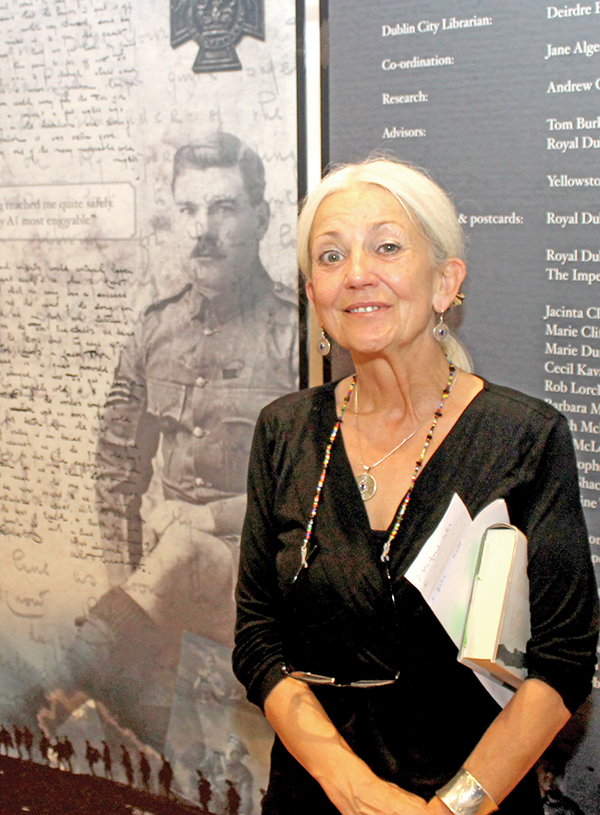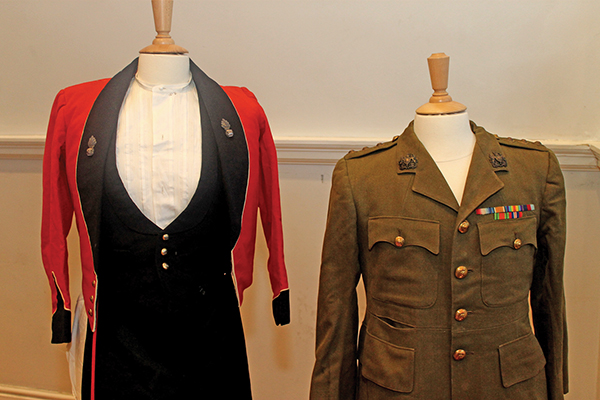
Pictured: Paula Meehan, guest speaker for the night.
“They called it the Great War. The only great thing about it was the enormously great numbers who died in it. War is not great. War is an abomination.”
Gary Kilgallen, former chair of the Irish Anti-apartheid Movement, opened up the evening of remembrance with this powerful statement. 2014 is the centenary marking the beginning of World War I, which saw a host of events geared towards remembering the 200,000 Irishmen who fought.
The audience was transported back in time through music, poetry and song, along with spine-chilling realism provided by guest speaker Tom Burke, Royal Dublin Fusiliers Association. Burke told NewsFour, “Nights like this are reflective of a changing attitude in Ireland towards our relationship with Britain. It was a human tragedy. We’re not interested in glorifying war. We’re remembering our own people that were so long forgotten about. Now they’re part of our history.”
Burke recited passages from letters forming part of an ongoing exhibition in Pearse Library telling The Human Story.
Professor of Poetry, Trinity College Dublin, Paula Meehan told NewsFour about why she was delighted to speak at the event. “As soon as Mary Russell approached me I said yes. She is a warrior for peace.” Russell coordinated the evening. Meehan recited from a collection of anti-war poems including Yeats’s An Irish Airman Foresees his Death, with a line perfectly expressing the Irish experience of this war: ‘those I fight I do not hate and those I guard I do not love’. She also read her own poem, After the News, for which she drew on a personal experience, and related it to readings she had encountered about that terrible moment when the telegram arrived.

Uniforms from World War 1.
The Ukuhooligans Ukulele Band and the Ringsend Singers provided much-needed lighthearted balance with a medley of wartime anthems including Pack up Your Troubles and It’s a Long Way to Tipperary. On a more sombre note, Dominic Nolan sounded The Last Post, silencing the gathering with its connotations.
Crucially, a new generation was present and taking part, with readings by students of Mount Carmel Secondary School, Kings Inn Street. “It’s great to see the young people here, and their contribution was top class. It’s so important that they carry on the stories,” said Burke. “There has been that cathartic movement from people being embarrassed about their past, to pride. Irish history is never just green white and orange. There’s a rainbow.
By Maria Shields O’Kelly



